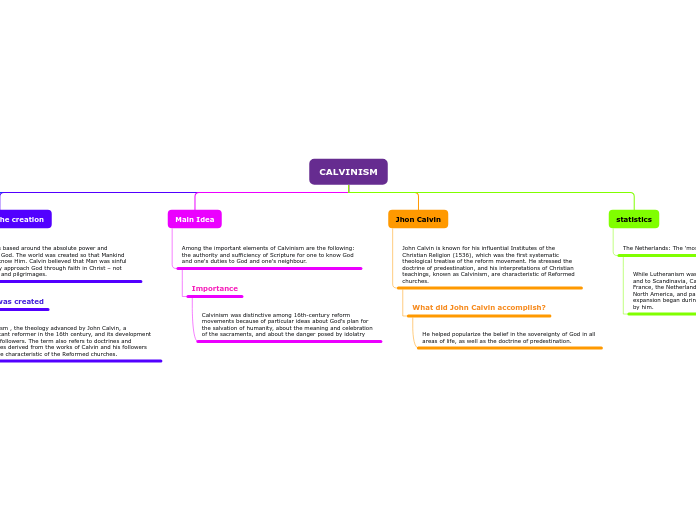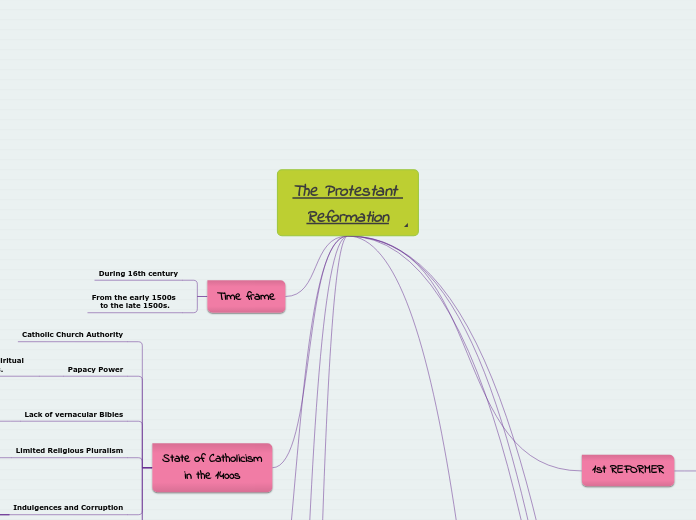CALVINISM
statistics
The Netherlands: The 'most Calvinist nation in the world
While Lutheranism was largely confined to parts of Germany and to Scandinavia, Calvinism spread into England, Scotland, France, the Netherlands, the English-speaking colonies of North America, and parts of Germany and central Europe. This expansion began during Calvin's lifetime and was encouraged by him.
Jhon Calvin
John Calvin is known for his influential Institutes of the Christian Religion (1536), which was the first systematic theological treatise of the reform movement. He stressed the doctrine of predestination, and his interpretations of Christian teachings, known as Calvinism, are characteristic of Reformed churches.
What did John Calvin accomplish?
He helped popularize the belief in the sovereignty of God in all areas of life, as well as the doctrine of predestination.
Main Idea
Among the important elements of Calvinism are the following: the authority and sufficiency of Scripture for one to know God and one's duties to God and one's neighbour.
Importance
Calvinism was distinctive among 16th-century reform movements because of particular ideas about God's plan for the salvation of humanity, about the meaning and celebration of the sacraments, and about the danger posed by idolatry
Reason of the creation
Calvinism was based around the absolute power and supremacy of God. The world was created so that Mankind might get to know Him. Calvin believed that Man was sinful and could only approach God through faith in Christ – not through Mass and pilgrimages.
When was created
Calvinism , the theology advanced by John Calvin, a Protestant reformer in the 16th century, and its development by his followers. The term also refers to doctrines and practices derived from the works of Calvin and his followers that are characteristic of the Reformed churches.
What is
What are the basic beliefs of Calvinism?
The five principles of Calvinism as formulated by the Synod of Dort (1618-1619) are summarized in "tulip," a popular acronym for total depravity, unconditional election, limited atonement, irresistibility of grace and final perseverance of the saints.
John Calvin is known for his influential Institutes of the Christian Religion (1536), which was the first systematic theological treatise of the reform movement. He stressed the doctrine of predestination, and his interpretations of Christian teachings, known as Calvinism, are characteristic of Reformed churches





![Ideals: Living Life on God's Level [12.21.2008] Ideals: Living Life on God's Level [12.21.2008]](/image/732d8ad733b94671a21632e95cfe4026/ideals-living-life-on-gods-level-12212008.png)



